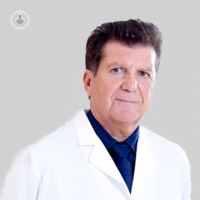Why is it important to vaccinate children?
Written by: Vaccines save lives, avoid great suffering and protect our children. Vaccination is an act of solidarity to prevent the spread of disease to other children and the community. Only this technique, disease eradication is achieved.
Vaccines save lives, avoid great suffering and protect our children. Vaccination is an act of solidarity to prevent the spread of disease to other children and the community. Only this technique, disease eradication is achieved.
When should we start vaccinating our children?
In Spain there are small differences in timing between different regions, although the vast majority of vaccinations are common throughout the State. In health centers, professionals in Pediatrics indicate current guidelines in each area.
However, patients can visit the website of the Spanish Association of Pediatrics (AEP). Once there, in the section of Spanish immunization schedules may visualize these guidelines. It is usual to start vaccinating the first months of life of the child, and go slowly administering doses every 2 months.
Is there not some sort of compulsory vaccination and which would be advisable to vaccinate our children?
There are no compulsory vaccinations. Vaccination is an act of freedom and individual responsibility and parents. There are free and funded or unfunded, according to the budgets for each national community.
All vaccines included in the official calendar are given for free. Fall outside this regime dose rotavirus and also, in some areas, pneumococcal and chickenpox, they must be purchased at the pharmacy for medical reasons.
For several months, is available in pharmacies the meningococcal B vaccine. The Spanish Association of Pediatrics (AEP) through its Committee on vaccines (CAV) recommends administration, since this disease has a mortality of 10% and causes serious consequences up to 25% of cases.
Do vaccines have side effects?
Vaccines are very safe drugs, they are subject to strict studies before they can be administered to the population and are still monitored even when marketed. However, as all drugs, they can produce side effects that are usually very mild (pain in the puncture, fever or rash).
Exceptionally, a dose can trigger severe reactions in people allergic to that preparation or other special circumstances. For this reason the administration by healthcare professionals and a stay in the center of 15-20 minutes after injection is recommended.


